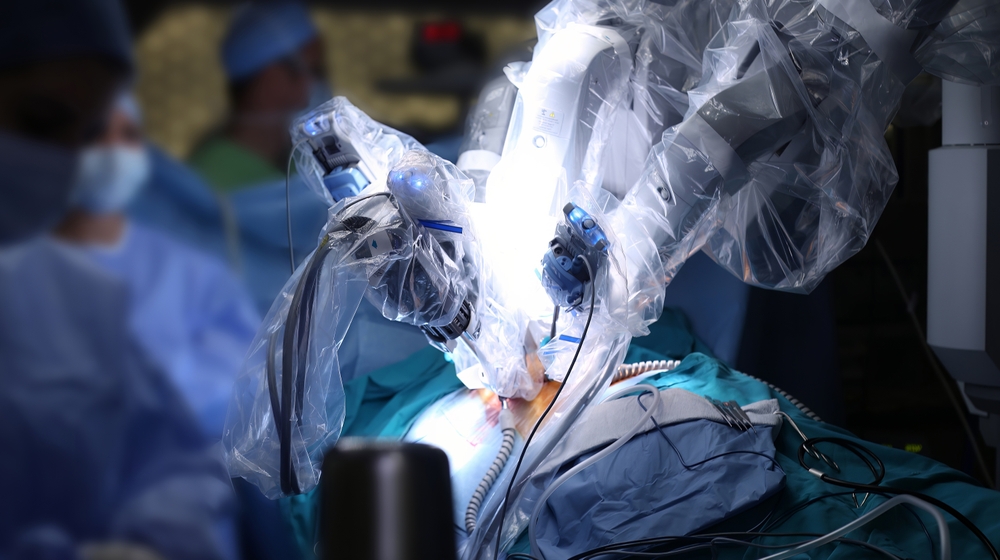Unlocking the Mystery of Chronic Chest Pain: Causes, Symptoms, and Diagnosis Options
Chest discomfort might feel like anything from a subtle aching to a violent stabbing. Chest pain can occasionally feel crushing or scorching. Sometimes the pain starts in the jaw and moves up the neck before spreading to the back or down one or both limbs.
Chest pain can be caused by a variety of issues. The heart or lungs are the most potentially fatal causes. You should seek immediate medical attention if you experience chest pain since it may be a sign of a serious issue.
Causes
Heart Problems
- Coronary artery disease, or CAD - Is an obstruction in the blood capillaries of the heart that lowers the amount of blood and oxygen reaching the heart muscle. This may result in angina-like pain. Although it is a sign of heart disease, the heart is usually not permanently harmed by it. It does, however, indicate that you are susceptible to having a heart attack in the future. The pain in your chest could radiate to your arm, shoulder, jaw, or back. It could feel as though something is pressing or squeezing you. Exercise, excitement, or mental stress can all cause angina, which is eased by rest.
- Myocardial infarction (heart attack) - Heart muscle cells die as a result of this decrease in blood flow through the heart's blood channels. Although a heart attack's chest pain resembles that of angina, it is typically more intense, crushing, and typically located in the middle or left side of the chest and is not alleviated by rest. The pain could be accompanied by sweating, nausea, shortness of breath, or extreme weakness.
- Myocarditis - This cardiac muscle inflammation may also result in fever, exhaustion, a rapid heartbeat, and breathing difficulties in addition to chest pain. Myocarditis symptoms can resemble those of a heart attack even when there is no blockage.
- Pericarditis - The sac surrounding the heart is inflamed or infected. It may result in pain resembling that of angina. But it frequently results in an acute, constant ache along the shoulder and upper neck muscles. When you breathe, swallow food, or lie on your back, it can occasionally get worse.
- Hypertrophic cardiomyopathy - The cardiac muscle thickens atypically as a result of this hereditary condition. This can occasionally cause issues with blood flow leaving the heart. Exercise frequently causes shortness of breath and chest pain. When the heart muscle becomes significantly thickened over time, cardiac failure may happen. The heart must work harder to pump blood as a result. This kind of cardiomyopathy can result in a variety of symptoms, including fainting, lightheadedness, dizziness, and chest pain.
- Mitral valve prolapse - A heart valve that doesn't seal completely is known as a mitral valve prolapse. Mitral valve prolapse can have no symptoms, especially if the prolapse is modest, but it has been linked to several symptoms, such as chest discomfort, palpitations, and dizziness.
- Coronary artery dissection - This uncommon but fatal illness arises when a tear forms in the coronary artery and can be brought on by a variety of factors. It may result in an instantaneous, excruciating pain that shoots up into the neck, back, or abdomen and feels tearing or ripping.
Lung Problems
- Pleuritis - This condition, also known as pleurisy, is an irritation or inflammation of the lining of the chest and lungs. When you breathe, cough, or sneeze, you probably experience a severe ache. Pneumothorax, pulmonary embolism, and bacterial or viral infections are the most typical causes of pleuritic chest discomfort. Lupus, cancer, and rheumatoid arthritis are some other less frequent causes.
- Pneumonia or lung abscess - Pleuritic and other types of chest pain, including severe discomfort in the chest, can be brought on by certain lung infections. A quick onset of symptoms such as fever, chills, coughing up pus, and pneumonia are common.
- Pulmonary Embolism - A blood clot that enters the bloodstream and lodges in the lungs can result in severe pleuritis, breathing difficulties, and an accelerated heartbeat. Fever and shock may also result from it. After deep vein thrombosis, after being immobilized for a few days following surgery, or as a side effect of cancer, pulmonary embolism is more likely to occur.
- Pneumothorax - Pneumothorax occurs when a portion of the lung collapses, releasing air into the chest cavity. It is frequently brought on by a chest injury. Other symptoms, such as low blood pressure, and pain that grows worse as you breathe might also result from this.
- Pulmonary Hypertension - This unusually high blood pressure in the pulmonary arteries causes the right side of the heart to work too hard and causes chest pain resembling angina.
- Asthma - Is an inflammatory condition of the airways that causes breathlessness, wheezing, coughing, and occasionally chest pain.
- COPD - The three diseases Emphysema, chronic bronchitis, and chronic obstructive asthma are included in this. The condition restricts airflow by weakening and harming the tiny air sacs (alveoli) that carry oxygen to your bloodstream and expel carbon dioxide as well as the airways that carry gasses and air to and from your lungs. The main contributing factor is smoking.
Gastrointestinal Problems
- Gastroesophageal reflux disease (GERD) - Often known as acid reflux, is brought on by the movement of stomach contents back into the throat. Heartburn, often known as a burning sensation in the chest or throat, may result from this. Obesity, smoking, pregnancy, and spicy or fatty foods are a few things that might cause acid reflux. Because the heart and esophagus are near to one another and share a neural network, heart pain and heartburn from acid reflux can feel similar to one another.
- Oesophagal contraction disorders - Chest pain can result from issues with the oesophagus, such as uncoordinated muscular contractions (spasms) and high-pressure contractions (nutcracker oesophagus).
- Oesophagal hypersensitivity - This happens when even the slightest pressure shift or acid exposure causes the oesophagus to become extremely uncomfortable. This sensitivity's origin is uncertain.
- Oesophagal rupture or perforation - Following vomiting or oesophagal surgery, sudden, excruciating chest discomfort may indicate an oesophagal rupture.
- Peptic ulcers - These uncomfortable sores in the stomach or initial section of the small intestine may cause a nagging, recurring irritation. The pain frequently subsides after eating or taking antacids, which is more common among smokers, heavy drinkers, or persons who take aspirin or other NSAIDs as a form of pain relief.
- Hiatal hernia - After eating, this typical issue arises when the top of the stomach presses against the lower chest. This frequently results in heartburn or chest pain as reflux symptoms. When you lie down, the discomfort usually worsens.
- Pancreatitis - If you experience lower chest pain that is frequently worse when you lie flat and better when you lean forward, you may have pancreatitis.
- Gallbladder problems - Do you have a feeling of satiety or soreness in your right lower chest area or right upper side of your belly after consuming a fatty meal? If so, a gallbladder issue could be the cause of your chest pain.
Symptoms
Depending on what is causing the condition, chest pain can generate a variety of various symptoms. Although it's difficult to know without consulting a doctor, the cause is frequently unrelated to the heart.
- Heart-related chest pain
Even though chest pain is frequently linked to heart disease, many sufferers claim to experience a general discomfort that isn't always felt as pain. In general, one or more of the following may be used to characterize or be linked to chest discomfort brought on by a heart attack or another heart issue:
- Your shoulders, one or both arms, back, neck, jaw, and other areas of your body with a crushing or scorching agony
- Pain that lasts more than a few minutes, intensifies with activity, diminishes and returns, or changes with time
- Feeling tight, full, scorching, or pressure in your chest
- Shortness of breath
- Cold sweats
- Dizziness or weakness
- Nausea or vomiting
Other types of pain in the chest
It might be challenging to discern between chest discomfort from the heart and other kinds of chest pain. The following is more frequently linked with chest pain that is less likely to be caused by a heart condition:
- A bitter taste or the impression that food is returning to your mouth
- Difficulty swallowing
- Pain that changes with your body position and either gets better or worse
- Pain that worsens when you cough or breathe deeply
- When you press on your chest, it feels soft.
- Pain that lasts for several hours
Heart or stomach issues might result in characteristic heartburn symptoms, which include a sharp ache behind the breastbone.
Diagnosis
If you believe you may be having a heart attack, seek emergency care right away, especially if your chest discomfort is new, unexplained, or lasts for more than a few seconds.
Your responses to the questions your doctor may ask you may help them determine the source of your chest pain. Be ready to talk about any associated symptoms as well as any drugs, therapies, or other medical issues you may be experiencing.






